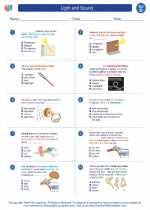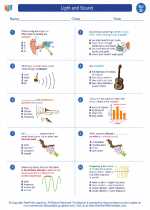Biomedical Engineering
Biomedical engineering is a multidisciplinary field that applies principles of engineering and design to the field of medicine and biology. Biomedical engineers work to create innovative solutions that can improve the quality of healthcare and patient outcomes. This field combines knowledge from engineering, biology, and medicine to develop technologies, devices, and systems that can address various medical and healthcare challenges.
Study Guide
1. Introduction to Biomedical Engineering
Biomedical engineering involves the application of engineering principles to healthcare and medicine. This includes the development of medical devices, diagnostic tools, prosthetics, and tissue engineering techniques.
2. Biomechanics
Biomechanics is a key area of study in biomedical engineering that focuses on the mechanics of the human body. This includes understanding how forces and movements affect the body, and the development of devices to support or enhance bodily functions.
3. Medical Imaging
Biomedical engineers work on the development of medical imaging technologies such as MRI, CT scans, and ultrasound. They aim to improve the quality of imaging, reduce radiation exposure, and enhance diagnostic capabilities.
4. Biomaterials
Biomaterials are materials that are compatible with biological systems and are used to develop medical implants, artificial organs, and tissue engineering scaffolds. Biomedical engineers study the properties of biomaterials and develop new materials for medical applications.
5. Regulatory Standards and Ethics
Biomedical engineers must be aware of regulatory standards and ethical considerations in the development of medical devices and technologies. This includes understanding FDA regulations, patient safety, and ethical use of technology in healthcare.
6. Career Opportunities
Biomedical engineering offers a wide range of career opportunities, including roles in research and development, medical device manufacturing, healthcare consulting, and academic institutions. It is a growing field with opportunities to make a significant impact on healthcare.
Studying biomedical engineering involves a combination of coursework in engineering, biology, and medical sciences. Students can pursue undergraduate and graduate degrees in biomedical engineering to gain the necessary knowledge and skills for a career in this field.
Overall, biomedical engineering is an exciting and rapidly evolving field that plays a critical role in advancing healthcare and improving the lives of patients around the world.
.◂Science Worksheets and Study Guides Fourth Grade. Light and Sound

 Worksheet/Answer key
Worksheet/Answer key
 Worksheet/Answer key
Worksheet/Answer key
 Worksheet/Answer key
Worksheet/Answer key
 Vocabulary/Answer key
Vocabulary/Answer key
 Vocabulary/Answer key
Vocabulary/Answer key
 Vocabulary/Answer key
Vocabulary/Answer key
